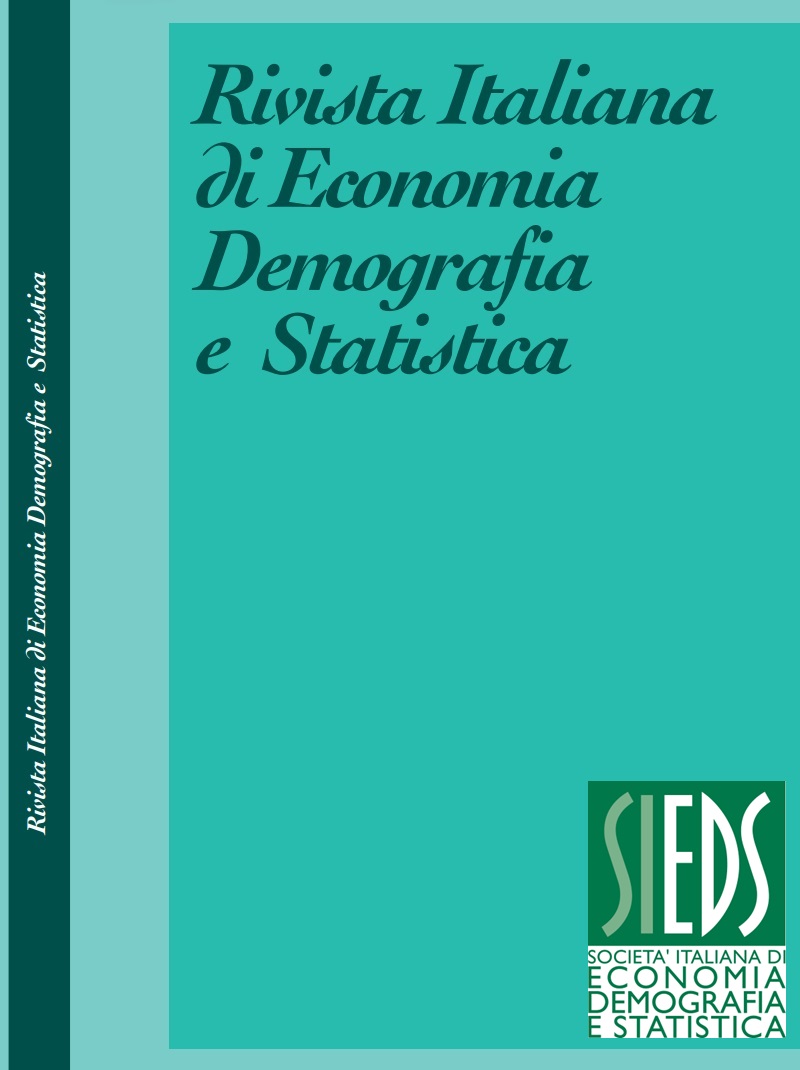Well-being at school
DOI:
https://doi.org/10.71014/sieds.v79i1.285Keywords:
Well-being at school, Discomfort at school, Improve well-being at school, Action-researchAbstract
The concept of personal well-being is multidimensional and encompasses both objective (economic, cultural, environmental, physical) and subjective (psychological, emotional, affective, socio-relational) conditions experienced by the individual. Numerous studies have confirmed the existence of a strong positive relationship between classroom climate and well-being, as well as between well-being and learning. This research is part of an action research framework and does not aim to draw inferential conclusions. Based on the assumption that any discomfort arising within a classroom must first be analyzed (research) and subsequently addressed through targeted interventions (action), the focus of this study was on the social and relational dimensions of well-being in the classroom.
Between February and April 2024, a non-probability sample of 553 children from third, fourth, and fifth grades in several primary schools in the northeast was surveyed using a structured questionnaire with 15 questions. The practical implications of this research are significant, as children provide clear insights into the conditions that foster their well-being. These findings offer valuable guidance for teachers and students alike on the actions that can be taken to improve classroom quality of life, and consequently, enhance learning outcomes.
References
BAKER L., BERNSTEIN H. 2012. The Impact of School Buildings on Student Health and Performance. McGraw-Hill. https://eddesignaward.com/research/ wp-content/uploads/2021/12/the-impact-of-school-buildings-on-student-health-and-performance_lindsay-baker.pdf
CRISTALLI B. 2021. Benessere a scuola per studenti e insegnanti. https://www.focus-scuola.it/benessere-a-scuola-per-studenti-e-insegnanti/
COUNCIL OF THE EUROPEAN UNION 2022. Council Recommendation on Pathways to School Success and replacing the Council Recommendation of 28 June 2011 on policies to reduce early school leaving. https://www.consilium.europa.eu/media/60390/st14981-en22.pdf.
FATOU N., KUBISZEWSKI V. 2018. Are perceived school climate dimensions predictive of students’ engagement?, Social Psychology of Education, Vol. 21, pp. 427–446. DOI: https://doi.org/10.1007/s11218-017-9422-x
GARDNER H. 2010 (first edition 1983). Formae mentis. Saggio sulla pluralità della intelligenza. Milano: Feltrinelli.
GOLEMAN D. 2020 (first edition 1995). Intelligenza Emotiva. Che cos’è e perché può renderci felici. Milano: Rizzoli.
HOSSAIN S., O’NEILL S., STRNADOVÁ I. 2023. What Constitutes Student Well-Being: A Scoping Review Of Students’ Perspectives, Child Indicators Research, Vol. 16, No. 2, pp. 447-483. DOI: https://doi.org/10.1007/s12187-022-09990-w
ISEN A. M., DAUBMAN K. A., NOWICKI G. P. 1987. Positive affect facilitates creative problem solving, Journal of personality and social psychology, Vol. 52, No. 6, pp. 1122-1131. DOI: https://doi.org/10.1037//0022-3514.52.6.1122
JUNG N., WRANKE C., HAMBURGER K., KNAUFF M. 2014. How emotions affect logical reasoning: evidence from experiments with mood-manipulated participants, spider phobics, and people with exam anxiety, Frontiers in psychology, Vol. 5, Article 570, https://doi.org/10.3389/fpsyg.2014.00570. DOI: https://doi.org/10.3389/fpsyg.2014.00570
KANIZSA S. (2007). Il lavoro educativo: l’importanza della relazione nel processo di insegnamento-apprendimento. Milano: Bruno Mondadori.
KANIZSA S., ZANINELLI F. L. (Eds) 2020. La vita a scuola. Milano: Raffaello Cortina Editore.
LEWIN K. 1946. Action Research and Minority Problems, Journal of Social Iusses, Vol. 2, pp. 34-46. DOI: https://doi.org/10.1111/j.1540-4560.1946.tb02295.x
LOMBARDI E., TRAFICANTE D., BETTONI R., OFFREDI I., GIORGETTI M., VERNICE M. 2019. The Impact of School Climate on Well-Being Experience and School Engagement: A Study WithHigh-School Students, Frontiers in Psychology, online, doi: 10.3389/fpsyg.2019.02482. DOI: https://doi.org/10.3389/fpsyg.2019.02482
PALOMBA D., STEGAGNO L. 2007. Emozioni e memoria: riscontri neuro e psicofisiologici, in E. AGAZZI E. and FORTUNATI V. (Eds) Memoria e saperi: percorsi transdisciplinari. Roma: Meltemi, pp. 229-242.
PEKRUN R., GOETZ T., TITZ W., PERRY R. P. 2002. Academic emotions in students' selfregulated learning and achievement: a program of qualitative and quantitative research, Educational Psychologist, Vol. 37, pp. 91-105. DOI: https://doi.org/10.1207/S15326985EP3702_4
PHELPS E. A. 2004. Human emotion and memory: interactions of the amygdala and hippocampal complex, Current opinion in neurobiology, Vol. 14, pp. 198-202. DOI: https://doi.org/10.1016/j.conb.2004.03.015
PIAGET J. 1991 (first edition 1936). La nascita dell’intelligenza nel fanciullo. Firenze: Giunti e Barbera.
POLITO M. 2021. Benessere in classe e apprendimento. Independently Published by Amazon.
STATHAM J., CHASE E. 2010. Childhood wellbeing: A brief overview. Loughborough University: Childhood Wellbeing Research Centre, www.researchgate.net/profile/June_Statham/publication/242676811_Childhood_Wellbeing_A_brief_overview/links/549bd87c0 cf2b80371372fc7.pdf
STEFANINI A. 2013. Le emozioni: Patrimonio della persona e risorsa per la formazione. Milano: Franco Angeli.
TOBIA V., GRECO A., STECA P., MARZOCCHI G.M. 2018. Children’s Wellbeing at School: A Multi-Dimensional and Multi-Informant Approach, Journal of Happiness Studies, Vol. 20, No. 3, pp. 841-861. DOI: https://doi.org/10.1007/s10902-018-9974-2
TOMÉ G., ALMEIDA A., RAMIRO L., GASPAR T., GASPAR DE MATOS M. 2021. Intervention in Schools promoting mental health and well-being: a systematic review, Global Journal of Community Psychology Practice, Vol. 12, No. 1, pp.1-23.
VEENHOVEN R. 2000. The four qualities of life, Journal of Happiness Studies, Vol.1, pp.1–39. DOI: https://doi.org/10.1023/A:1010072010360
VUILLEUMIER P. 2005. How brains beware: neural mechanisms of emotional attention, Trends in cognitive sciences, Vol. 9, pp. 585-594. DOI: https://doi.org/10.1016/j.tics.2005.10.011
VYGOTSKY L. S. 1966 (originale 1934). Pensiero e linguaggio. Firenze: Giunti e Barbera.
WORLD HEALTH ORGANIZATION 2020. Basic documents. Forthy ninth edition.
Downloads
Published
Issue
Section
License
Copyright (c) 2025 Nidia Batic

This work is licensed under a Creative Commons Attribution 4.0 International License.



